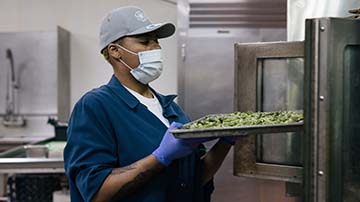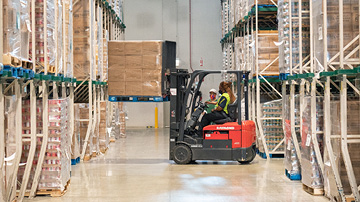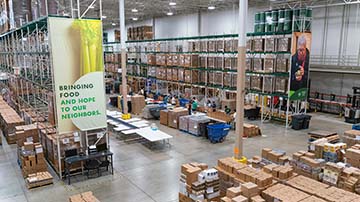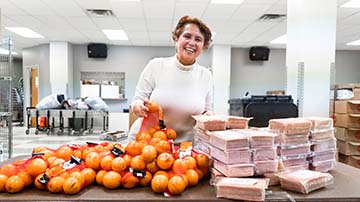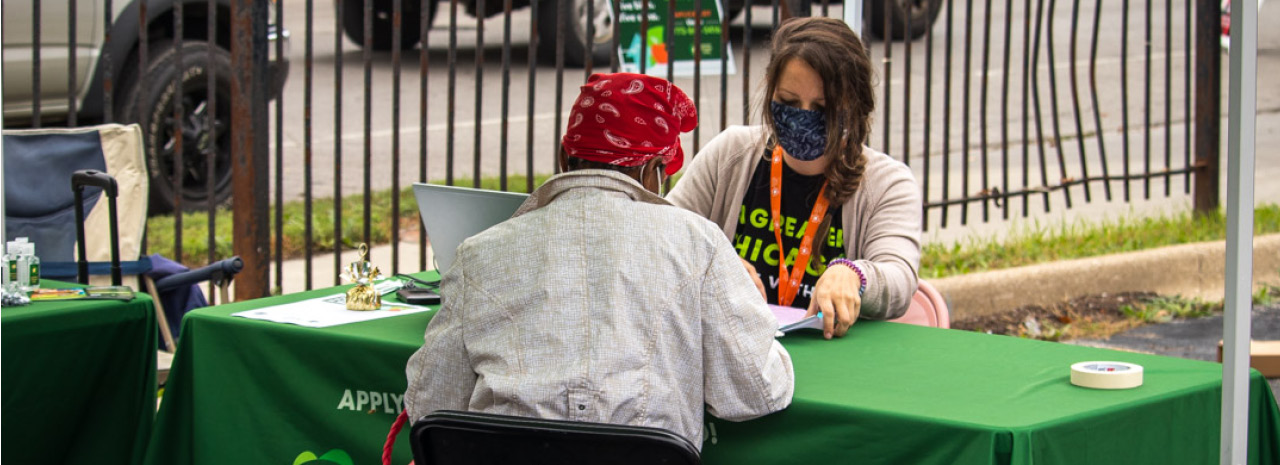
Strong anti-hunger policies lessen crisis
Charitable food assistance alone cannot solve the current hunger crisis caused by the COVID-19 pandemic.
This fiscal year, the Food Depository’s policy team advocated for additional funds and flexibility for critical federal nutrition programs to meet the increased need for food assistance while safeguarding public health. Fortunately, Congress increased benefits for the Supplemental Nutrition Program (SNAP) and the Women, Infants and Children (WIC) program and gave states significant flexibility to operate nutrition programs while maintaining social distancing. Congress also authorized a temporary Pandemic-EBT program to support households with children during the COVID-19 crisis.
In March 2021, the Biden administration also reversed two proposed changes to SNAP from the previous administration, which would have made it harder for mixed-status households and low-income working adults to access benefits. These investments in our federal safety net have allowed more people to purchase the food they need.
At the state level, the Food Depository – as part of the Illinois Commission to End Hunger – helped create the Roadmap to End Hunger. Locally, we helped establish the city of Chicago’s first Food Equity Council, which has outlined an agenda of goals to remove barriers for residents to access nutritious food.
“Now is the time for us to find innovative ways of collaborating with organizations, create new strategic partnerships and ultimately serve our clients better.”
Colleen Burns, the Food Depository’s state engagement and innovation lead
The Food Depository’s benefits outreach team also worked diligently to enroll eligible Cook County residents in federal assistance programs. This year, the Food Depository and our community partners helped submit 4,476 SNAP and Medicaid applications. The team also launched a new community-led partnership to close the SNAP and Medicaid enrollment gap in the priority communities of Englewood, Austin and North Lawndale.
Policy gains are essential to keep up with the increased demand that food banks like the Food Depository are seeing as the pandemic persists – particularly in low-income communities of color. Not only are government programs effective in keeping food insecurity and poverty rates down, they also allow families to get through difficult times with dignity and peace of mind. It is critical that nutrition programs continue to be strengthened, even after the worst of COVID-19 is behind us.
Supporters like you play a vital role in helping us advocate for anti-hunger policies and programs. Thank you for joining us in this work.
STORIES
- Food pantries continue to meet elevated demand
- Prepared meals reach neighbors with unique needs
- Food Depository network expands to support neighbors in need
- Prioritizing food equity
- Through ongoing crisis, volunteers rise to the challenge
- Strong anti-hunger policies lessen crisis
- Feeding kids during a year of disruption
- Paid job training programs provide new start
- Serving a heightened need
